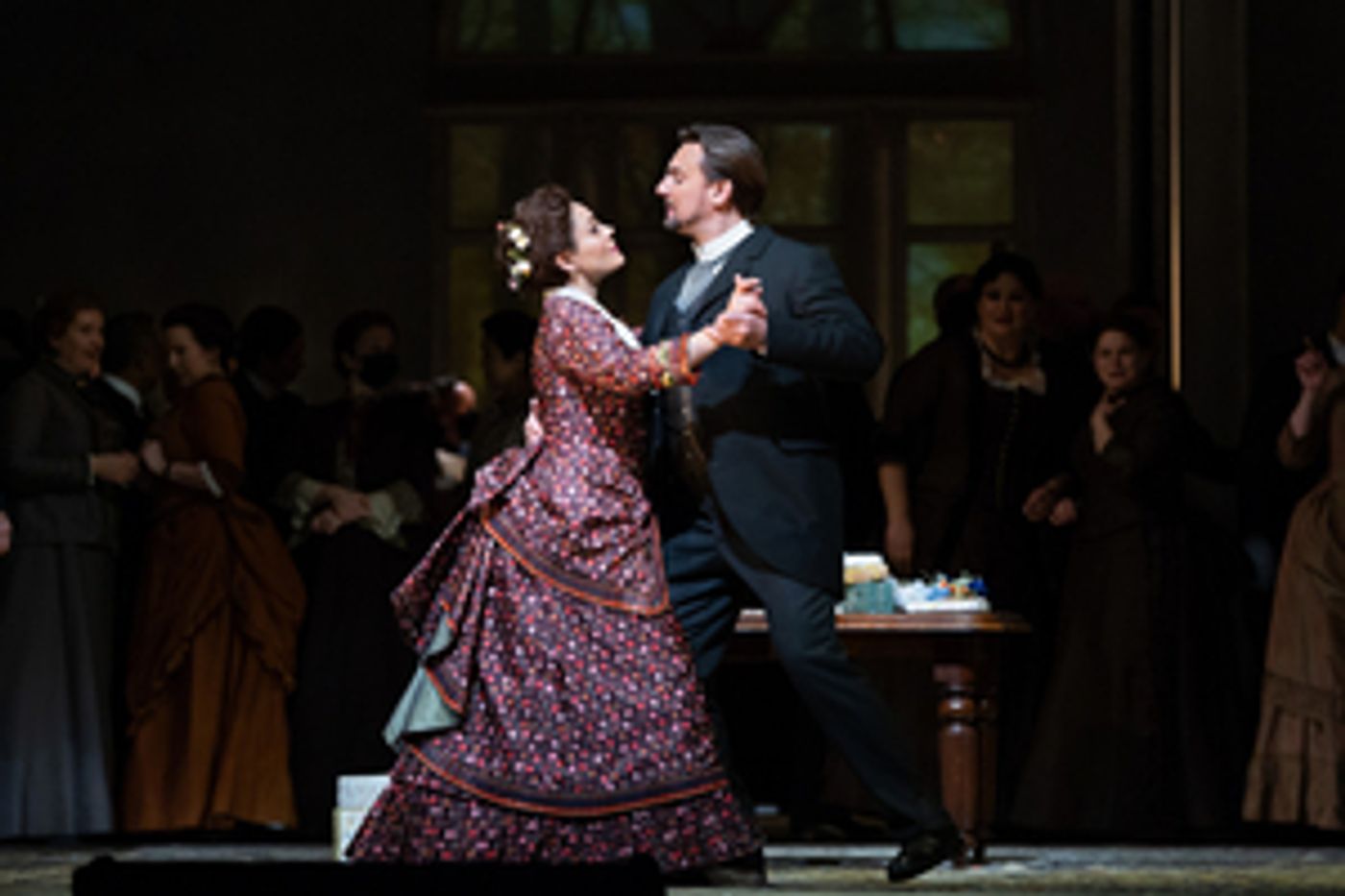Review: EUGENE ONEGIN at the Metropolitan Opera
The production by Deborah Warner is thoroughly traditional, but could have used some variation in scenic design in the three scenes of the first act.

The 2013 production of Tchaikovsky's Pushkin-inspired opera EUGENE ONEGIN has triumphantly returned to the Met. I attended the final dress rehearsal and can attest to the fact that the story of Tatyana's infatuation with, and later rejection of, the eponymous "hero" is vocally in superb hands. Both singers and orchestra were splendid.
The title role of the disillusioned ONEGIN was taken by Igor Golovatenko, who made a terrific impression as Yeletsky in QUEEN OF SPADES in 2019. He reaffirmed his status as one of today's leading baritones in his performance today. He has a strong, smooth baritone and is a believable actor in a role that is essentially one-dimensional.
Ailyn Perez was singing Tatyana for the first time and was very convincing as well. Her creamy lyric soprano was perfect for the young heroine in her longing for ONEGIN in the first act and she was equally convincing as the more mature Princess Gremin in the final act. The Letter Scene, the centerpiece of the first act was gorgeous, and the soprano personified the love-struck Tatyana as if in a dreamlike state, perfectly suited to the circumstance. Piotr Beczala, who has been assuming more dramatic roles as of late, repeated his impulsive Lenski, which he had sung when this production was new.
He sang with a strong, gleaming voice, as we have come to expect from him. I look forward eagerly to his Lohengrin next year. Varduhi Abrahamyan sang Tatyana's sister Olga, who is affianced to Lenski, and whose flirting with Onegin at a party ends in disaster. Ms. Abrahamyan held her own in this small but pivotal role. Ain Anger was a rich-voiced, commanding Prince Gremin. Other roles were expertly handled by Elena Zaremba as Mme. Larina and Larissa Diadkova as Filippyevna.
The orchestra was under the expert leadership of James Gaffigan. The score runs the gamut from intensely introspective moments, to waltzes and polonaises, all played with sheer beauty and excitement. The chorus, which has a fair amount to sing, was under the guidance of Donald Palumbo and acquitted themselves well.
The production by Deborah Warner is thoroughly traditional, but could have used some variation in scenic design in the three scenes of the first act. The most successful set was the frozen woods for the dual scene, which was very atmospheric.
Reader Reviews
Videos

